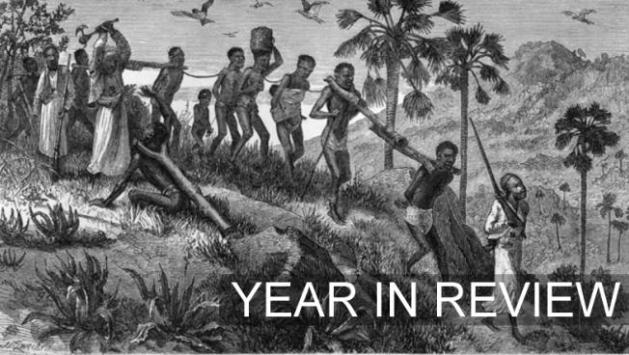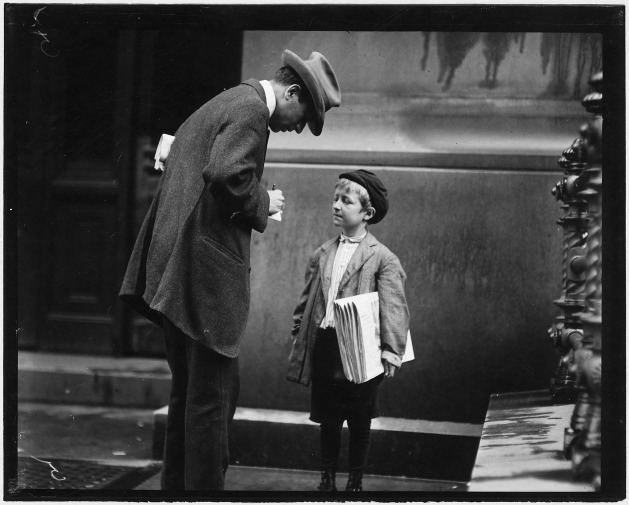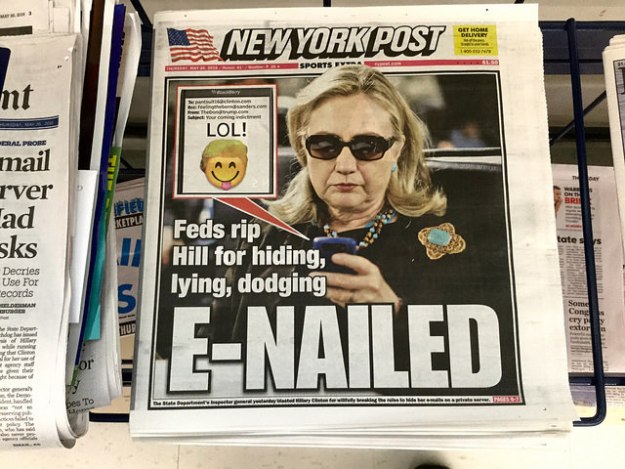
Photo (cc) 2016 by Mike Mozart.
In a close election, you can point to any single factor and say that was responsible for the outcome. The presidential election was not close in the popular vote (Hillary Clinton is ahead by 2.7 million votes), but the margin of victory in the states that put Donald Trump over the top in the Electoral College (Pennsylvania, Michigan, and Wisconsin) was narrow indeed.
Now comes Thomas E. Patterson of the Shorenstein Center on Media, Politics and Public Policy, part of Harvard’s Kennedy School, to tell us that the press failed in its coverage of the general-election campaign. Plenty of us have been making the same argument, though I tend to believe that the coverage of Trump was so wildly negative that the more plausible explanation is his voters knew and didn’t care.
But Patterson takes that into account. His data-based findings show that coverage of Trump and Clinton was more or less equally negative. As a result, the landscape flattened out, with voters deciding Clinton’s emails were every bit as serious as Trump’s bragging about sexual assault, his hateful rhetoric, his dubious business dealings, and on and on and on. Patterson’s report is chock full of quotable excerpts. Here’s a good one:
[I]ndiscriminate criticism has the effect of blurring important distinctions. Were the allegations surrounding Clinton of the same order of magnitude as those surrounding Trump? It’s a question that journalists made no serious effort to answer during the 2016 campaign. They reported all the ugly stuff they could find, and left it to the voters to decide what to make of it. Large numbers of voters concluded that the candidates’ indiscretions were equally disqualifying and made their choice, not on the candidates’ fitness for office, but on less tangible criteria—in some cases out of a belief that wildly unrealistic promises could actually be kept.
Patterson also finds that Trump got more coverage than Clinton, giving him the opportunity to define both himself and her. Another important observation: Even when coverage of both candidates is uniformly negative, it tends to help the political right, since it’s conservatives who are promoting the message that government doesn’t work.
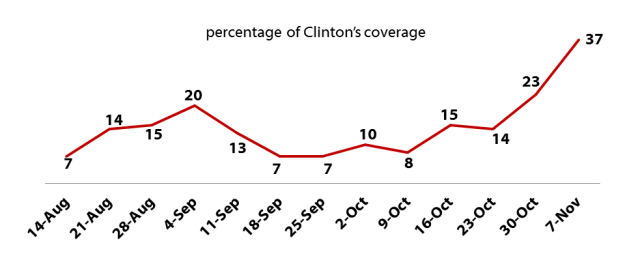
Clinton’s “scandal” coverage, week by week, showing the effect of Comey’s reopening of the email investigation.
My own caveat about Clinton’s use of a private email server when she was secretary of state: You can choose to believe that it was not a serious matter. In fact, I think there’s a strong case to be made that the importance of that issue was vastly overblown (see Matthew Yglesias at Vox).
But I also think it’s difficult to assign too much blame to the media given that James Comey, the director of the FBI, came forward in July to say Clinton had been “extremely careless” in her handling of classified information, and then reopened his investigation just before the election. Reporters report what the head of the FBI says, and if what he says is wrong and/or politically motivated, that generally doesn’t come out until much later. In any case, Comey took a tremendous amount of criticism in the media for his late hit on the Clinton campaign.
To get back to my opening point: The election was close enough that the media’s failures might very well have been sufficient to tilt the outcome toward Trump.
Patterson’s study was the fourth in a series dating back to the earliest days of the campaign, and was “based on an analysis of news reports by ABC, CBS, CNN, Fox, the Los Angeles Times, NBC, the New York Times, USA Today, the Wall Street Journal, and the Washington Post.”
Talk about this post on Facebook.
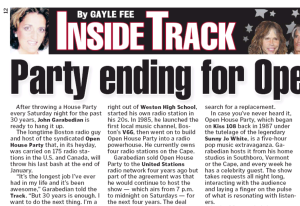 Time was when the “Inside Track,” the Boston Herald‘s gossip column, was among the most read—and feared—media outposts in the city. For years, Laura Raposa and Gayle Fee tracked the famous and tormented the powerful. And before them was the late Norma Nathan, whose column was called “The Eye.”
Time was when the “Inside Track,” the Boston Herald‘s gossip column, was among the most read—and feared—media outposts in the city. For years, Laura Raposa and Gayle Fee tracked the famous and tormented the powerful. And before them was the late Norma Nathan, whose column was called “The Eye.”

